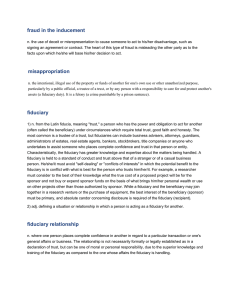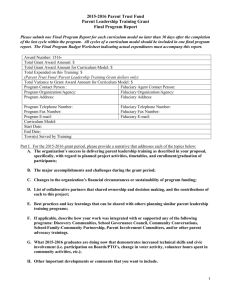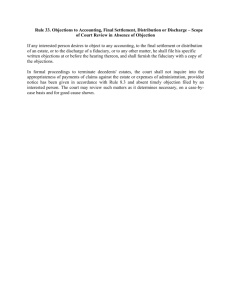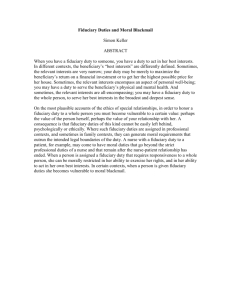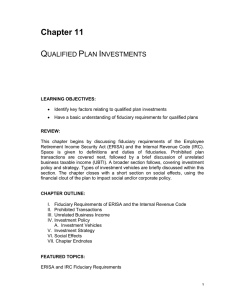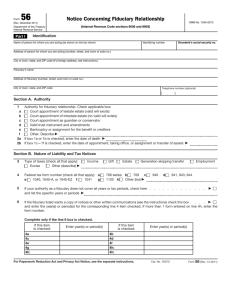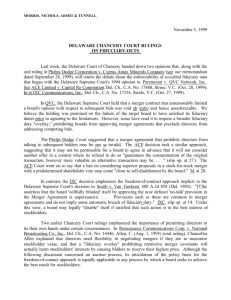Top 10 Mistakes for Plan Sponsors to Avoid! 1. Not Knowing You
advertisement
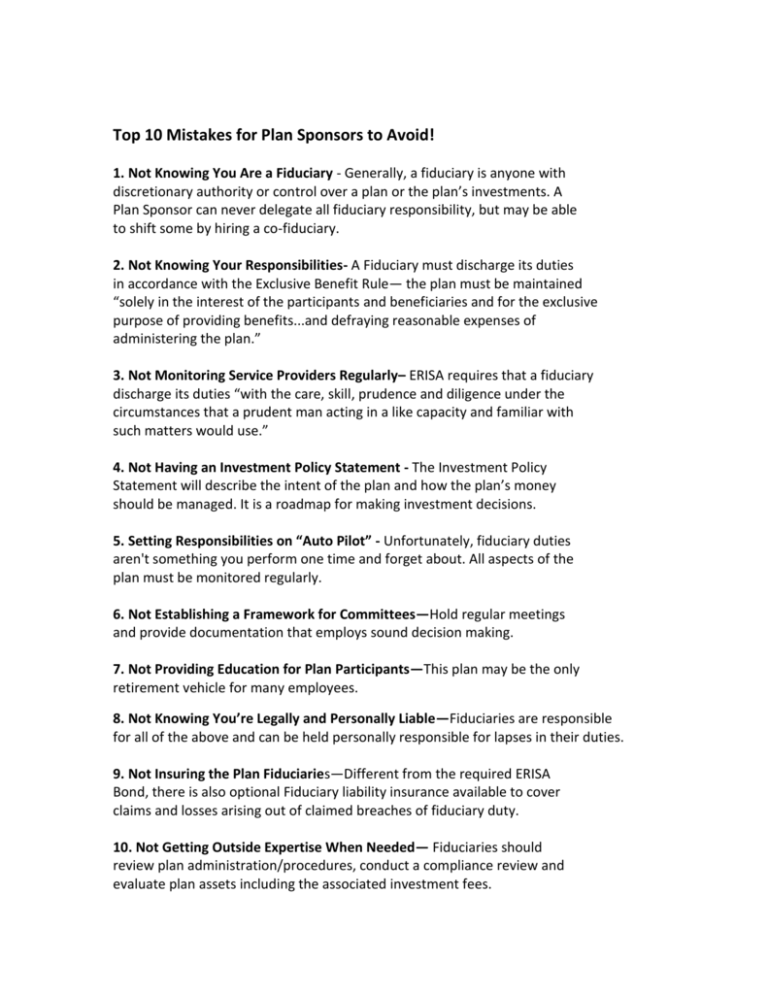
Top 10 Mistakes for Plan Sponsors to Avoid! 1. Not Knowing You Are a Fiduciary - Generally, a fiduciary is anyone with discretionary authority or control over a plan or the plan’s investments. A Plan Sponsor can never delegate all fiduciary responsibility, but may be able to shift some by hiring a co-fiduciary. 2. Not Knowing Your Responsibilities- A Fiduciary must discharge its duties in accordance with the Exclusive Benefit Rule— the plan must be maintained “solely in the interest of the participants and beneficiaries and for the exclusive purpose of providing benefits...and defraying reasonable expenses of administering the plan.” 3. Not Monitoring Service Providers Regularly– ERISA requires that a fiduciary discharge its duties “with the care, skill, prudence and diligence under the circumstances that a prudent man acting in a like capacity and familiar with such matters would use.” 4. Not Having an Investment Policy Statement - The Investment Policy Statement will describe the intent of the plan and how the plan’s money should be managed. It is a roadmap for making investment decisions. 5. Setting Responsibilities on “Auto Pilot” - Unfortunately, fiduciary duties aren't something you perform one time and forget about. All aspects of the plan must be monitored regularly. 6. Not Establishing a Framework for Committees—Hold regular meetings and provide documentation that employs sound decision making. 7. Not Providing Education for Plan Participants—This plan may be the only retirement vehicle for many employees. 8. Not Knowing You’re Legally and Personally Liable—Fiduciaries are responsible for all of the above and can be held personally responsible for lapses in their duties. 9. Not Insuring the Plan Fiduciaries—Different from the required ERISA Bond, there is also optional Fiduciary liability insurance available to cover claims and losses arising out of claimed breaches of fiduciary duty. 10. Not Getting Outside Expertise When Needed— Fiduciaries should review plan administration/procedures, conduct a compliance review and evaluate plan assets including the associated investment fees.
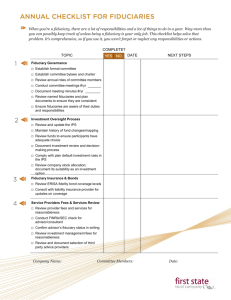

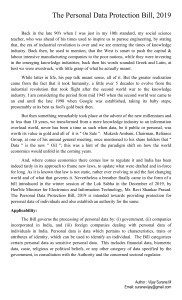
![Mark Whitenack Digital Assets PowerPoint Presentation []](http://s2.studylib.net/store/data/005383425_1-9cf830a5f2e9fc777daa963eb9460c8e-300x300.png)
